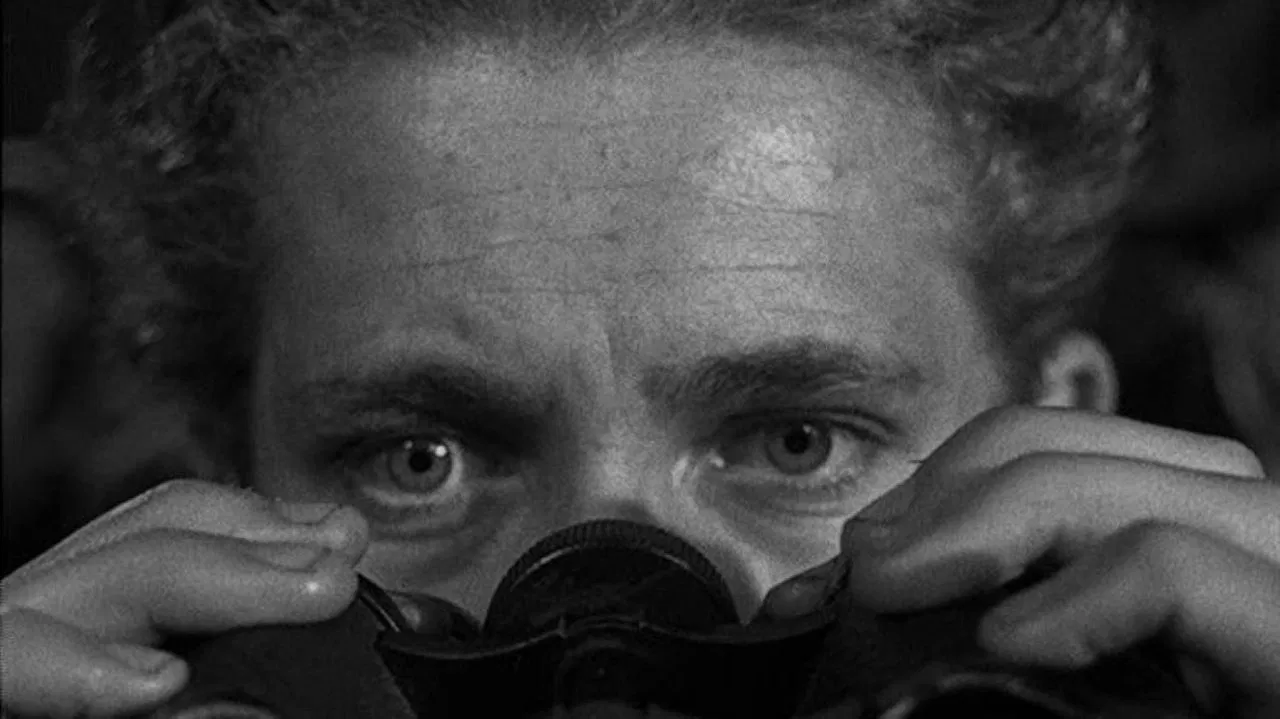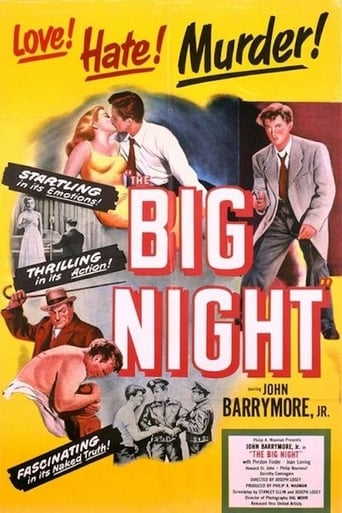

Don't Believe the Hype
... View MoreWhen a movie has you begging for it to end not even half way through it's pure crap. We've all seen this movie and this characters millions of times, nothing new in it. Don't waste your time.
... View MoreA great movie, one of the best of this year. There was a bit of confusion at one point in the plot, but nothing serious.
... View MoreThe story, direction, characters, and writing/dialogue is akin to taking a tranquilizer shot to the neck, but everything else was so well done.
... View More***SPOILERS**** At a coming of age 17th birthday party at a neighborhood bar young George La Main, Drew Barrymore, is shocked to see his father Andrew, Preston Forster, meekly allow himself to be whipped black and blue in front all the shocked costumers by crippled sportswriter Al Judge, Howard St. John, without as much as raising a finger in his defense. Seeking revenge against Judge for what he did to his father George gets a .38 revolver from his room and goes out into the night looking for him and planning to blow Judge away in an act of revenge.This all has George later find Judge in his pad writing a story about a fight that he and George witnessed at the garden arena who seems not at all surprised to see him even with a gun pointed at his head. It's then that Judge gives George the lowdown to why he so brutally beat his father and why he being far bigger and much stronger the the crippled and old Judge that he took the beating almost willingly! Soon a fight erupts between George and Judge with Judge enduing up on the floor from a bullet wound with George fleeing from the oncoming, who were alerted by the neighbors, police!***SPOILERS***Back home with his dad and waiting to be arrested for the murder of Mr. Judge George finds out that his dad is taking the rap for what he just did. It also turns out that despite George being more then willing to take the blame for shooting Judge everything is soon to turn out to be find with Judge alive and well suffering only powder burns and Judge willing to drop all charges against George or his dad who's taking the rap for him. We and George then learn from his dad that he more then deserved what he got from Judge by driving his sister to suicide by refusing to marry her. We also find out that George's dad is still married to his wife whom he told his son has died soon after he was born! Which is the reason he couldn't marry Judge's sister that drove her to kill herself! So as we and George found out his dad really got off light in what he did and even in taking responsibility for shooting Judge, who dropped all the charges against him, it was his actions that lead his son George to try to blast Judge! Who as it turned out was the real injured party in this strange and baffling case.
... View MoreThe Big Night (1951)Wow, the dark scenes and the dark mood of this movie are gripping stuff. Even the ever-struggling Barrymore in the lead role--Drew's dad, John Drew Barrymore--is edgy and tough enough to carry it through some very intense emotional stuff. Ultimately the movie is about redemption, but it is mostly an exploration of nihilism--a kind of self-defeating despair that was probably in the air for many in post-war America.The plot is pure Hitchcock--a murder takes place at the wrong time for the wrong reason. The difference is that the focus here isn't on the innocent man accused (there is one of those, and we don't sympathize with him) but on the guilty man unaccused. And so there is a psychological thread as we see his decline, and the pressure around him build. Other layers to the plot include his mother dying, and an overall desperation to survive in the most basic ways, paying the rent and eating. Don't expect to be cheered up on this one. But do expect to be deeply embroiled. If it lacks the depth and drama of, say, "On the Waterfront" or some other movie set in the New York area around the same time, it makes up for it at least partially in gritty realism. This is small time stuff without the gloss and hype. But with director Joseph Losey's famous use of photography (brilliant, by Hal Mohr) and ambiance (the art director went on to do a lot of classic "Gunsmoke" episodes). A great one for what works best here.
... View MoreJoseph Losey's The Big Night is a film noir that's also, like Moonrise and Talk About A Stranger, a coming-of-age story. The young male undergoing his transformational journey is John Barrymore, Jr., son of the Great Profile and father of Drew. His film career was not high-profile, as he inherited the family disposition toward chemical dependency (blood will tell). But here, boasting a luxuriantly healthy crown of hair, he gives a surprisingly intense yet controlled performance. His big night happens to be his 16th or 17th birthday, when his barkeep father is brutally beaten and publicly humiliated by a local sportswriter (Losey's staging is unflinching). Frustrations about his own Hamlet-like ditherings and confusions impel him to seek revenge on his father's behalf, and, gun in pocket, he sets out into a nightscape of prize fights, gin mills and the walk-up flats of casually met strangers. While Losey's sympathies lie with Barrymore, it's always clear that the emergent man is still a callow stripling, incapable of apprehending the complex reality he crashes into, like a fatted calf in a china shop. Though the director refrains from pushing the conclusion to where it might logically go -- he retreats into sentimentality and sententiousness -- The Big Night still scores as a provocative, moodily shot film.
... View MoreThe story here is revenge, more real-life based, a 1950's version of the crime of passion. A teenager's good-hearted father is beaten to a pulp by a gangster, so the kid invades the streets to get some payback. The father's not worried about the floor-wiping, which leads to a mystery behind the teen's mother, who skipped out on the family long ago, and a woman the father knows who has committed suicide.Seeing this film, there's not much in terms of plot, but there are some notable scenes, particularly when the kid hears a beautiful night-club singer, becomes entranced, gets a chance to meet her on the street, and tells her how beautiful she is. Even though she's, you know,black. The pain in the singer's face rends the poor kid, who was transported by her voice, but can't get beyond her skin color.This film also has one of THE great lines ever in any film noir or any movie period, at least concerning the tragedy between a man and a woman, when there is love involved. There are no words more powerful or poignant, especially for a man who loves a woman beyond reason, who knows he has lost the love of his life. Unable to move on, to love or marry another woman after that one woman has destroyed him, and in fact still very much in love with his destroyer,Preston Foster tells his son, "Sometimes a man loves one woman in the whole world. If she turns out to be the wrong one, well...that's just tough." Truly, the heart of noir is not blackness, but the white-hot scars of passion.
... View More